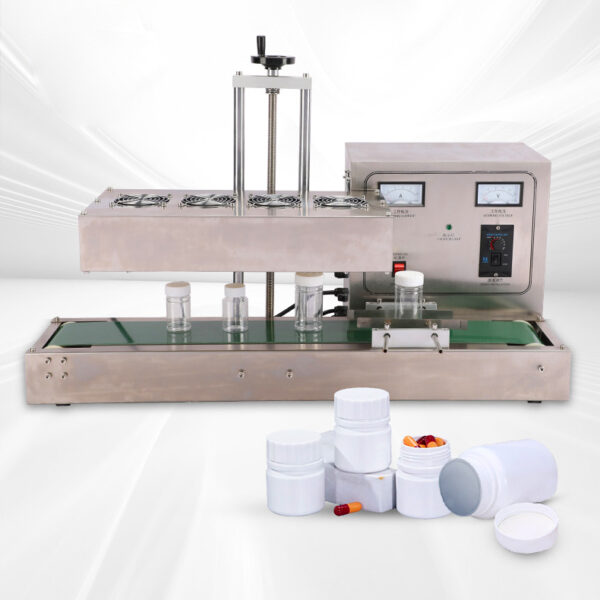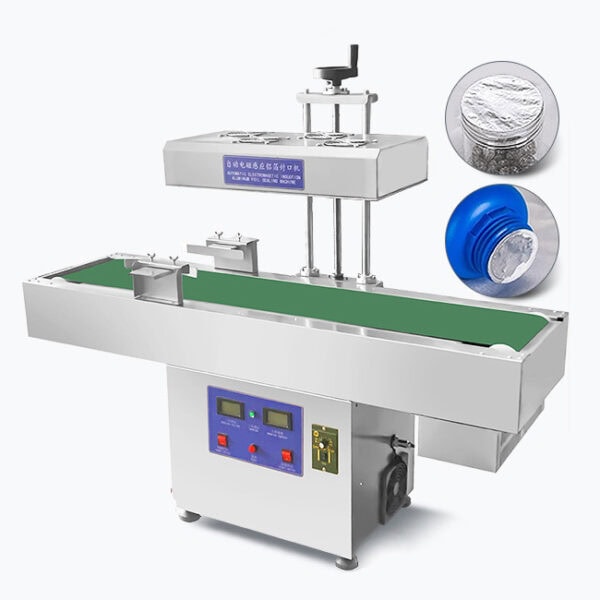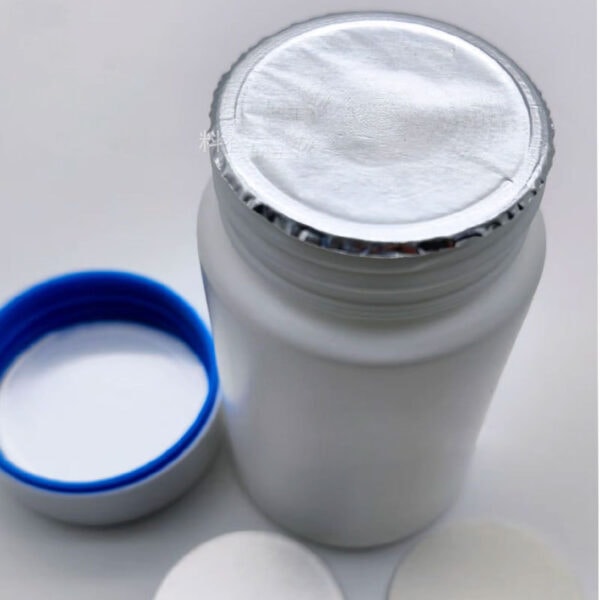Packaging failures, product contamination, and leakage during shipping and storage can harm brand reputation and customer satisfaction. These issues lead to financial losses, reduced product shelf life, and consumer dissatisfaction. Induction sealing offers an efficient, reliable, and economical solution to these problems.
The Advantages of Induction Sealing
Induction sealing provides benefits such as leak prevention, extended product shelf life, tamper evidence, cost-efficiency, and environmental sustainability. This method ensures safe, reliable, and secure packaging for various industries.

Leak Prevention and Seal Integrity
Induction sealing ensures a tight, spill-proof seal that prevents leaks during transport and storage. This sealing method creates an airtight barrier, protecting the product from contamination. For manufacturers of sensitive products, such as pharmaceuticals or liquid packaging machines, this reliability is crucial in meeting safety and quality standards.
Moreover, the robust seal minimizes damage during handling, ensuring that your product arrives in perfect condition, ready for customer use.
Tamper Evidence for Enhanced Security
Induction seals offer visible tamper evidence, which reassures consumers of product integrity. This security feature is particularly valuable for food and beverage producers using a bottle labeling machine or a flat labeling machine. By showing signs of tampering, businesses can build trust and confidence in their brand.
For compliance-driven industries, such as pharmaceuticals and cosmetics, tamper-evident packaging is essential to meeting regulatory standards while protecting consumers.
Extended Shelf Life
Induction sealing creates a protective barrier against oxygen, moisture, and contaminants, significantly extending a product’s shelf life. For example, companies using a vacuum packaging machine or an industrial shrink wrap can leverage induction seals to maintain product freshness for longer periods. This reduction in spoilage and waste benefits both the manufacturer and the consumer.
The improved product longevity also translates into lower return rates and enhanced customer satisfaction, further improving brand reputation.

Cost Efficiency and Sustainability
Compared to traditional sealing methods, induction sealing reduces material costs while maintaining superior performance. For instance, manufacturers using an induction sealing machine or an automatic liquid packaging machine benefit from the energy-efficient sealing process, which saves operational costs and minimizes downtime.
Additionally, induction seals use lightweight, recyclable materials, contributing to environmentally sustainable practices and lowering the carbon footprint of packaging operations.
Industry Versatility and Compatibility
Induction sealing is compatible with a wide range of packaging containers, including plastic and glass. This versatility allows its application across industries, from pharmaceuticals to beverages, where a customized labeling machine might also be employed for unique packaging needs.
Whether for small-scale production or high-speed assembly lines, induction sealing adapts seamlessly to meet varying production requirements.
Consumer Convenience
Beyond safety and reliability, induction sealing improves the consumer experience by offering easy-to-open designs. Products sealed with induction technology often include features such as tear tabs, making them more accessible while still ensuring protection during transit.
Enhanced Branding Opportunities
Induction seals can incorporate brand elements such as logos or promotional messages, enhancing the product’s visual appeal. This customization is particularly impactful when paired with a label printer or a barcode printer, creating a cohesive and branded packaging solution.

Compliance and Regulation Support
Induction sealing helps manufacturers meet stringent industry regulations for product safety, hygiene, and tamper resistance. Businesses involved in food, pharmaceuticals, and cosmetics industries benefit significantly from this reliable technology, ensuring that their packaging meets both local and international standards.
Conclusion
Induction sealing enhances packaging safety, integrity, and efficiency, benefiting businesses across various industries. By leveraging this technology, manufacturers can achieve cost-effective, reliable, and eco-friendly packaging solutions, ensuring customer satisfaction and regulatory compliance.









